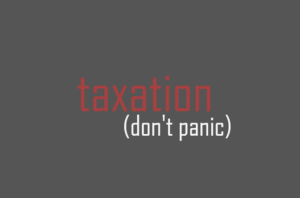Opinion: Economic Development: Zhooniyaa, and you – A lesson on taxation
 Submitted by the Anishinabek Nation Economic Development Department
Submitted by the Anishinabek Nation Economic Development Department
Two brothers were having a discussion the other day about taxes and First Nation people and one asked the other, “Would you pay a sales tax if it meant that the money would help build better roads and houses in the community?”
Now, it was no surprise that the answer to this question was a resounding, “They can’t charge me any sales tax ‘cause I have my Status Card and it’s the government’s job to build the roads and houses!” Of course, because brothers love to argue, the first brother could not help but remind the other about the large portion of his paycheque that goes to the Government of Canada in the form of income taxes and that those taxes help pay for the roads and infrastructure on his First Nation.
Well, there was not much left to debate on the original question because the retort was absolutely correct on both counts. In Ontario, all First Nations people who hold a Certificate of Indian Status issued by the Government of Canada are entitled to an exemption from the provincial portion of the Harmonized Sales Tax (HST) and this exemption also extends to any income received for work completed on reserve lands. And yes, the federal government is responsible for funding roads and infrastructure on First Nations in Ontario as a result of their Treaty relationship.
But what if it wasn’t the federal or provincial government that collected the sales tax? What if it was our own First Nations’ respective governments that imposed and collected sales, property, or other taxes to support the health, education, social, infrastructure, and other programs being provided to its citizens? Many of us don’t always consider that within the Anishinabek territory there is a large portion of our citizenry that lives or works outside of a First Nation community and therefore contributes to the tax base for the federal, provincial, and municipal governments. (It is important to mention that the Indian Act, sec. 87, tax exemptions do not apply to taxes or levies imposed by a First Nation Band Council on its own citizens.)
Many of us do not generally consider that the taxes we pay to the government are how we participate in economic development on a daily basis. Taxes and levies are an important part of the revenues generated by governments to support their operations and to support the economy through government spending. So, if our First Nation governments were to impose and collect taxes or levies on sales, property, or other things, then there would be more revenue to support not only their operations but initiatives that would support the local economy.
There are many Tribal Governments in the United States that have been using property and consumption taxes to support their government operations and programming, and as a means to augment trivial funds provided through Federal or State funding agreements or programs. This does not come without its own problems caused by dual taxation by the State and Tribal governments, but there are many emerging agreements across many states that attempt to deal with this issue to the benefit of the Tribes.
Some Tribal Governments are now capitalizing on the tax exemption status on Tribal Trust Lands to support the development of business centres, gaming, and sports facilities and to collect Tribal taxes or levies from all of the companies and consumers who do business within tribal lands. Even in instances where the Tribal Governments need to share a portion of the revenues generated from non-Tribal members with their state government, the benefits far outweigh the costs. You can look at the listing on the National Congress of American Indians website for a sampling of the various tax regimes and agreements in the United States. An example of using taxation, exemptions, and local economic development planning to benefit a community could be seen by conducting an Internet search for the economic development initiatives of the Salt River Pima-Maricopa Indian Community.
In Canada, some First Nations have implemented sales tax regimes through the First Nations Goods and Services Tax program. Others have begun imposing taxes or levies on real property on reserve with support from the First Nation Tax Commission. There are some communities that have imposed taxes or levies on gasoline and tobacco products purchased by First Nation consumers in an effort to generate tax revenues to support economies. The Cowichan Tribe is one of those communities that has imposed a seven-per-cent Community Improvement Fee that is levied on tobacco, fuel, and alcohol sold to all consumers on First Nation Lands. You could also look at the West Bank First Nation website to see how a community has benefited from the use of property taxes to support the local economy.
The common denominator amongst all of the Tribal and First Nation governments is that they have realized the benefits of using tax revenues to support local economies. A regional or localized tax regime could facilitate the creation of stable tax bases that could provide revenue streams to support government spending on infrastructure and government programs.
Although the prospect of paying taxes is not a discussion that many of us would look forward to, just as the brothers at the beginning did, we ought to begin discussing taxation as something that can benefit us and our communities for the next generation and those to come.


